Baclofen for alcohol use disorder
- PMID: 36637087
- PMCID: PMC9837849
- DOI: 10.1002/14651858.CD012557.pub3
Baclofen for alcohol use disorder
Abstract
Background: Alcohol use disorder (AUD) is one of the most widespread psychiatric disorders leading to detrimental consequences to people with this disorder and others. Worldwide, the prevalence of heavy episodic drinking (30-day prevalence of at least one occasion of 60 g of pure alcohol intake among current drinkers) is estimated at 20% and the prevalence of AUD at 5% of the adult general population, with highest prevalence in Europe and North America. Therapeutic approaches, including pharmacotherapy, play an important role in treating people with AUD. This is an update of a Cochrane Review first published in 2018.
Objectives: To evaluate the benefits and harms of baclofen on achieving and maintaining abstinence or reducing alcohol consumption in people with AUD compared to placebo, no treatment or any other pharmacological relapse prevention treatment.
Search methods: We used standard, extensive Cochrane search methods. The latest search was 22 November 2021.
Selection criteria: Randomised controlled trials (RCTs) of at least four weeks' treatment duration and 12 weeks' overall study duration comparing baclofen for AUD treatment with placebo, no treatment or other treatments.
Data collection and analysis: We used standard Cochrane methods. Our primary outcomes were 1. relapse, 2. frequency of use, 3. amount of use, 4. adverse events, 5. dropouts from treatment and 6. dropouts from treatment due to adverse events. Our secondary outcomes were 7. craving, 8. anxiety, 9. depression and 10. frequency of most relevant adverse events.
Main results: We included 17 RCTs (1818 participants) with a diagnosis of alcohol dependence according to the Diagnostic and Statistical Manual of Mental Disorders, 4th edition or International Classification of Diseases 10th edition criteria. Mean age was 46.5 years and 70% were men. Ten studies compared baclofen to placebo or another medication; seven compared two baclofen doses to placebo or another medication. Globally, 15 studies compared baclofen to placebo, two baclofen to acamprosate and two baclofen to naltrexone. In 16 studies, participants received psychosocial treatments. We judged most studies at low risk of selection, performance, detection (subjective outcome), attrition and reporting bias. Ten studies detoxified participants before treatment; in seven studies, participants were still drinking at the beginning of treatment. Treatment duration was 12 weeks for 15 RCTs and longer in two studies. Baclofen daily dose was 30 mg to 300 mg: 10 RCTs used low doses (30 mg or less); eight RCTs medium doses (above 30 and 100 mg or less) and four RCTs high doses (above 100 mg). Compared to placebo, moderate-certainty evidence found that baclofen probably decreases the risk to relapse (risk ratio (RR) 0.87, 95% confidence interval (CI) 0.77 to 0.99; 12 studies, 1057 participants). This result was confirmed among detoxified participants but not among other subgroups of participants. High-certainty evidence found that baclofen increases the percentage of days abstinent (mean difference (MD) 9.07, 95% CI 3.30 to 14.85; 16 studies, 1273 participants). This result was confirmed among all subgroups of participants except non-detoxified or those who received medium doses. There was no difference between baclofen and placebo in the other primary outcomes: heavy drinking days (standardised mean difference (SMD) -0.18, 95% CI -0.48 to 0.11; 13 studies, 840 participants; moderate-certainty evidence); number of drinks per drinking days (MD -0.45, 95% CI -1.20 to 0.30; 9 studies, 392 participants; moderate-certainty evidence); number of participants with at least one adverse event (RR 1.05, 95% CI 0.99 to 1.11; 10 studies, 738 participants; high-certainty evidence); dropouts (RR 0.88, 95% CI 0.74 to 1.03; 17 studies, 1563 participants; high-certainty evidence); dropouts due to adverse events (RR 1.39, 95% CI 0.89 to 2.18; 16 studies, 1499 participants; high-certainty evidence). These results were confirmed by subgroup analyses except than for the dropouts that resulted lower among participants who received high doses of baclofen and studies longer than 12 weeks. Compared to placebo, there was no difference in craving (SMD -0.16, 95% CI -0.37 to 0.04; 17 studies, 1275 participants), anxiety (MD -0.01, 95% CI -0.14 to 0.11; 15 studies, 1123 participants) and depression (SMD 0.07, 95% CI -0.12 to 0.27; 11 studies, 1029 participants). Concerning the specific adverse events, baclofen increases fatigue, dizziness, somnolence/sedation, dry mouth, paraesthesia and muscle spasms/rigidity. There was no difference in the other adverse events. Compared to acamprosate, one study (60 participants) found no differences in any outcomes but the evidence was very uncertain: relapse (RR 1.25, 95% CI 0.71 to 2.20; very low-certainty evidence); number of participants with at least one adverse event (RR 0.63, 95% CI 0.23 to 1.69; very low-certainty evidence); dropouts (RR 0.56, 95% CI 0.21 to 1.46; very low-certainty evidence); dropouts due to adverse events (RR 0.33, 95% CI 0.01 to 7.87; very low-certainty evidence) and craving (MD 5.80, 95% CI -11.84 to 23.44); and all the adverse events evaluated. Compared to naltrexone, baclofen may increase the risk of relapse (RR 2.50, 95% CI 1.12 to 5.56; 1 study, 60 participants; very low-certainty evidence) and decrease the number of participants with at least one adverse event (RR 0.35, 95% CI 0.15 to 0.80; 2 studies, 80 participants; very low-certainty evidence) but the evidence is very uncertain. One study (60 participants) found no difference between baclofen and naltrexone in the dropouts at the end of treatment (RR 1.00, 95% CI 0.32 to 3.10; very low-certainty evidence), craving (MD 2.08, 95% CI -3.71 to 7.87), and all the adverse events evaluated.
Authors' conclusions: Baclofen likely reduces the risk of relapse to any drinking and increases the percentage of abstinent days, mainly among detoxified participants. It does not increase the number of participants with at least one adverse event, those who dropout for any reason or due to adverse events. It probably does not reduce number of heavy drinking days and the number of drinks per drinking days. Current evidence suggests that baclofen may help people with AUD in maintaining abstinence. The results of comparisons of baclofen with acamprosate and naltrexone were mainly based on only one study.
Copyright © 2023 The Cochrane Collaboration. Published by John Wiley & Sons, Ltd.
Conflict of interest statement
RA: none.
RS: none.
SR: none.
SM: none.
Figures
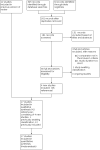
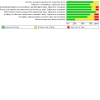
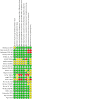
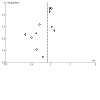
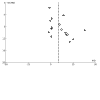
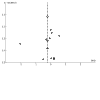
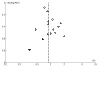
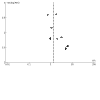

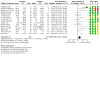
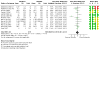
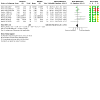
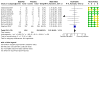
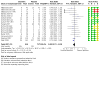
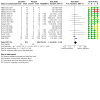
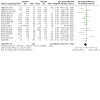
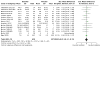
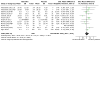
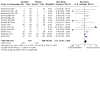



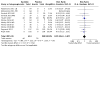

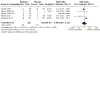
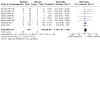

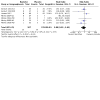
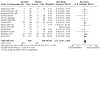
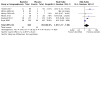
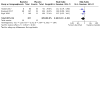
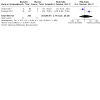
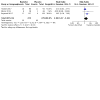
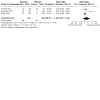
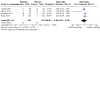
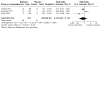
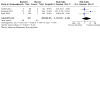
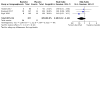
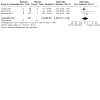

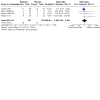
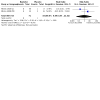
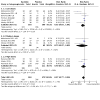
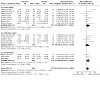
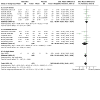
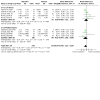
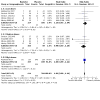
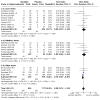
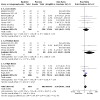
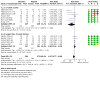
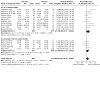
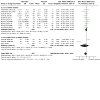
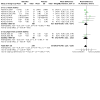
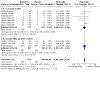
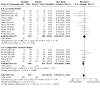
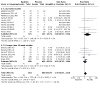
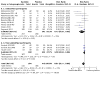
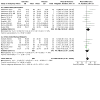
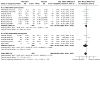
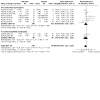
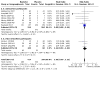
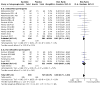
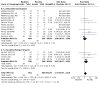
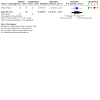
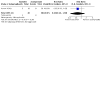
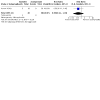

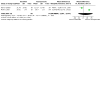
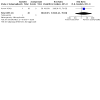
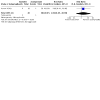

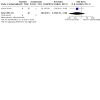
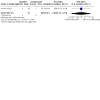
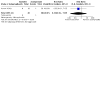

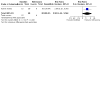
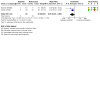
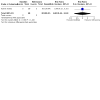
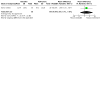

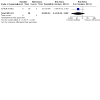
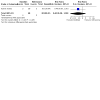
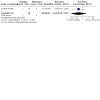
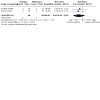
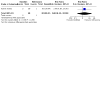
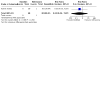
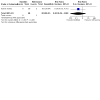
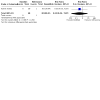
Update of
-
Baclofen for alcohol use disorder.Cochrane Database Syst Rev. 2018 Nov 26;11(11):CD012557. doi: 10.1002/14651858.CD012557.pub2. Cochrane Database Syst Rev. 2018. Update in: Cochrane Database Syst Rev. 2023 Jan 13;1:CD012557. doi: 10.1002/14651858.CD012557.pub3. PMID: 30484285 Free PMC article. Updated.
Similar articles
-
Combined pharmacological and psychosocial interventions for alcohol use disorder.Cochrane Database Syst Rev. 2025 Mar 20;3(3):CD015673. doi: 10.1002/14651858.CD015673.pub2. Cochrane Database Syst Rev. 2025. PMID: 40110869
-
Drugs for preventing postoperative nausea and vomiting in adults after general anaesthesia: a network meta-analysis.Cochrane Database Syst Rev. 2020 Oct 19;10(10):CD012859. doi: 10.1002/14651858.CD012859.pub2. Cochrane Database Syst Rev. 2020. PMID: 33075160 Free PMC article.
-
Vitamin D for the treatment of inflammatory bowel disease.Cochrane Database Syst Rev. 2023 Oct 2;10(10):CD011806. doi: 10.1002/14651858.CD011806.pub2. Cochrane Database Syst Rev. 2023. PMID: 37781953 Free PMC article.
-
Foetal haemoglobin inducers for reducing blood transfusion in non-transfusion-dependent beta-thalassaemias.Cochrane Database Syst Rev. 2023 Jan 13;1(1):CD013767. doi: 10.1002/14651858.CD013767.pub2. Cochrane Database Syst Rev. 2023. PMID: 36637054 Free PMC article.
-
Siponimod for multiple sclerosis.Cochrane Database Syst Rev. 2021 Nov 16;11(11):CD013647. doi: 10.1002/14651858.CD013647.pub2. Cochrane Database Syst Rev. 2021. PMID: 34783010 Free PMC article.
Cited by
-
Neurological adverse events associated with baclofen: a pharmacovigilance study based on FDA adverse event reporting system.Front Pharmacol. 2025 May 14;16:1569602. doi: 10.3389/fphar.2025.1569602. eCollection 2025. Front Pharmacol. 2025. PMID: 40438599 Free PMC article.
-
Restoring GABAB receptor expression in the ventral tegmental area of methamphetamine addicted mice inhibits locomotor sensitization and drug seeking behavior.Front Mol Neurosci. 2024 Feb 7;17:1347228. doi: 10.3389/fnmol.2024.1347228. eCollection 2024. Front Mol Neurosci. 2024. PMID: 38384279 Free PMC article.
-
Combined pharmacological and psychosocial interventions for alcohol use disorder.Cochrane Database Syst Rev. 2025 Mar 20;3(3):CD015673. doi: 10.1002/14651858.CD015673.pub2. Cochrane Database Syst Rev. 2025. PMID: 40110869
-
GABAergic signaling in alcohol use disorder and withdrawal: pathological involvement and therapeutic potential.Front Neural Circuits. 2023 Oct 20;17:1218737. doi: 10.3389/fncir.2023.1218737. eCollection 2023. Front Neural Circuits. 2023. PMID: 37929054 Free PMC article. Review.
-
Evidence of subgroup differences in meta-analyses evaluating medications for alcohol use disorder: An umbrella review.Alcohol Clin Exp Res (Hoboken). 2024 Jan;48(1):5-15. doi: 10.1111/acer.15229. Epub 2023 Dec 15. Alcohol Clin Exp Res (Hoboken). 2024. PMID: 38102794 Free PMC article. Review.
References
References to studies included in this review
Addolorato 2007 {published and unpublished data}
-
- Addolorato G, Leggio L, Ferrulli A, Cardone S, Vonghia L, Mirijello A, et al. Effectiveness and safety of baclofen for maintenance of alcohol abstinence in alcohol-dependent patients with liver cirrhosis: randomised, double-blind controlled study. Lancet 2007;370(9603):1915-22. [DOI: 10.1016/S0140-6736(07)61814-5] - DOI - PubMed
Addolorato 2011‐LD {published and unpublished data}
-
- Addolorato G, Leggio L, Ferrulli A, Cardone S, Bedogni G, Caputo F, et al. Dose–response effect of baclofen in reducing daily alcohol intake in alcohol dependence: secondary analysis of a randomized, double-blind, placebo-controlled trial. Alcohol and Alcoholism 2011;46(3):312-7. [PMID: ] - PubMed
Addolorato 2011‐MD {published and unpublished data}
-
- Addolorato G, Leggio L, Ferrulli A, Cardone S, Bedogni G, Caputo F, et al. Dose–response effect of baclofen in reducing daily alcohol intake in alcohol dependence: secondary analysis of a randomized, double-blind, placebo-controlled trial. Alcohol and Alcoholism 2011;46(3):312-7. [PMID: ] - PubMed
Beraha 2016‐HD {published data only}
-
- Beraha EM, Salemink E, Goudriaan AE, Bakker A, De Jong D, Smits N, et al. Efficacy and safety of high-dose baclofen for the treatment of alcohol dependence: a multicentre, randomised, double-blind controlled trial. European Neuropsychopharmacology 2017;26(12):1950-9. - PubMed
Beraha 2016‐LD {published data only}
-
- Beraha EM, Salemink E, Goudriaan AE, Bakker A, De Jong D, Smits N, et al. Efficacy and safety of high-dose baclofen for the treatment of alcohol dependence: a multicentre, randomised, double-blind controlled trial. European Neuropsychopharmacology 2017;26(12):1950-9. - PubMed
Garbutt 2010a {published data only}
-
- Garbutt JC, Kampov-Polevoy AB, Gallop R, Kalka-Juhl L, Flannery BA. Efficacy and safety of baclofen for alcohol dependence: a randomized, double-blind, placebo-controlled trial. Alcoholism, Clinical and Experimental Research 2010;34(11):1849-57. [DOI: 10.1111/j.1530-0277.2010.01273.x] - DOI - PMC - PubMed
Garbutt 2010b1 {published data only}
Garbutt 2010b2 {published data only}
Garbutt 2021‐LD {published and unpublished data}
-
- NCT01980706. Efficacy and safety of high-dose baclofen for alcohol dependence. www.clinicaltrials.gov/ct2/show/NCT01980706 (first received 11 November 2013).
-
- Pedersen CA, Kampov-Polevoi WA, Jordan R, Casey R, Tatrau J, Gallop R, et al. Efficacy and tolerability of high-dose baclofen in a U.S. community population: a randomized, placebo-controlled trial. Alcoholism: Clinical and Experimental Research 2018;42(Suppl 1):65A.
Garbutt 2021‐MD {published and unpublished data}
-
- NCT01980706. Efficacy and safety of high-dose baclofen for alcohol dependence. www.clinicaltrials.gov/ct2/show/NCT01980706 (first received 11 November 2013).
-
- Pedersen CA, Kampov-Polevoi WA, Jordan R, Casey R, Tatrau J, Gallop R, et al. Efficacy and tolerability of high-dose baclofen in a U.S. community population: a randomized, placebo-controlled trial. Alcoholism: Clinical and Experimental Research 2018;42(Suppl 1):65A.
Hauser 2017 {published data only}
Krupitskii 2017 {published data only}
-
- Krupitskii EM, Rybakova KV, Kiselev AS, Alekseeva YV, Berntsev VA, Chekhlatyi EI, et al. Efficacy and safety of the use of baclofen in the treatment of alcohol dependent (a double-blind, randomized, placebo-controlled pilot study). Neuroscience and Behavioral Physiology 2017;47(2):153-62. [DOI: 10.1007/s11055-016-0379-6] - DOI
-
- Krupitsky EM, Rybakova KV, Kiselev AS, Alexeeva YV, Berntsev VA, Chekhlaty EI, et al. Double blind placebo controlled randomized pilot clinical trial of baclofen (Baclosan®) for alcohol dependence. Zhurnal Nevrologii i Psikhiatrii Imeni S.S. Korsakova 2015;115(6):53-62. [DOI: 10.17116/jnevro20151156153-62] - DOI - PubMed
Kumar 2020a {published data only}
Leggio 2015 {published and unpublished data}
-
- Bollinger J, Edwards SM, Zywiak WK, Tidey JW, Swift RW, Kenna GA, et al. A double-blind, placebo-controlled randomized pilot study of the effects of baclofen on alcohol-tobacco co-use and alcohol cue-reactivity in alcoholic smokers. Clinical and Translational Science 2014;7(3):265.
-
- Farokhnia M, Edwards SM, Bollinger J, Amodio J, Zywiak WH, Tidey JW, et al. Baclofen as a pharmacotherapy for the treatment of concurrent alcohol and nicotine dependence: a double-blind, placebo-controlled, randomized trial. Erratum for: Neuropsychopharmacology. 2014 Dec;39 Suppl 1:S1-647. Neuropsychopharmacology 2015;40(6):1560. - PMC - PubMed
Mishra 2010 {published data only}
-
- Mishra SN, Swain SP, Shukla RK, Sarkar P. A study of comparative efficacy of baclofen vs acamprosate in reducing alcohol craving and abuse. Orissa Journal of Psychiatry 2010;-:48-53.
Morley 2014‐LD {published data only}
Morley 2014‐MD {published data only}
Morley 2018‐LD {published and unpublished data}
-
- Logge W, Baillie AJ, Morris RW, Haber PS, Morley KC. Baclofen reduces alcohol cue-induced fMRI brain activation in treatment seeking alcohol dependent individuals. Alcoholism: Clinical and Experimental Research 2018;42(Suppl 1):65A.
-
- Logge WB, Baillie AJ, Haber PS, Morley KC. Baclofen modulates cardiovascular responses to appetitive cues in treatment-seeking alcohol use disorder individuals. Human Psychopharmacology 2020;35(2):e2722. - PubMed
-
- Logge WB, Haber PS, Baillie AJ, Kosinski P, Morris RW, Fraser I, et al. Dose-specific baclofen effects on brain structure, function and treatment responses: neuroimaging findings from the BacALD trial. Alcoholism: Clinical and Experimental Research 2021;45(Suppl 1):20A-21A.
-
- Logge WB, Morley KC, Haber PS, Baillie AJ. Executive functioning moderates responses to appetitive cues: a study in severe alcohol use disorder and alcoholic liver disease. Alcohol and Alcoholism 2019;54(1):38-46. - PubMed
Morley 2018‐MD {published and unpublished data}
-
- Logge W, Baillie AJ, Morris RW, Haber PS, Morley KC. Baclofen reduces alcohol cue-induced fMRI brain activation in treatment seeking alcohol dependent individuals. Alcoholism: Clinical and Experimental Research 2018;42(Suppl 1):65A.
-
- Logge WB, Baillie AJ, Haber PS, Morley KC. Baclofen modulates cardiovascular responses to appetitive cues in treatment-seeking alcohol use disorder individuals. Human Psychopharmacology 2020;35(2):e2722. - PubMed
-
- Logge WB, Haber PS, Baillie AJ, Kosinski P, Morris RW, Fraser I, et al. Dose-specific baclofen effects on brain structure, function and treatment responses: neuroimaging findings from the BacALD trial. Alcoholism: Clinical and Experimental Research 2021;45(Suppl 1):20A-21A.
-
- Logge WB, Morley KC, Haber PS, Baillie AJ. Executive functioning moderates responses to appetitive cues: a study in severe alcohol use disorder and alcoholic liver disease. Alcohol and Alcoholism 2019;54(1):38-46. - PubMed
Muller 2015 {published data only}
-
- Beck A, Pelz P, Lorenz RC, Charlet K, Geisel O, Heinz A, et al. Effects of high-dose baclofen on cue reactivity in alcohol dependence: a randomized, placebo-controlled pharmaco-fMRI study. European Neuropsychopharmacology 2018;28(11):1206-16. - PubMed
-
- Geisel O, Hellweg R, Wernecke KD, Wiedemann K, Müller CA. Total and acylated ghrelin plasma levels as potential long-term response markers in alcohol-dependent patients receiving high-dose of the GABA-B receptor agonist baclofen. Psychiatry Research 2019;272:431-7. - PubMed
-
- Geisel O, Schlemm L, Hellweg R, Wiedemann K, Müller CA. Hypothalamic-pituitary-adrenocortical axis activity in alcohol-dependent patients during treatment with high-dose baclofen. Pharmacopsychiatry 2019;52(1):32-7. - PubMed
Ponizovsky 2015 {published data only}
-
- Ponizovsky AM, Rosca P, Aronovich E, Weizman A, Grinshpoon A. Baclofen as add-on to standard psychosocial treatment for alcohol dependence: a randomized, double-blind, placebo-controlled trial with 1 year follow-up. Journal of Substance Abuse Treatment 2015;52:24-30. [DOI: 10.1016/j.jsat.2014.11.007] - DOI - PubMed
Reynaud 2017 {published data only}
-
- Pouchain D. A randomized, placebo-controlled study of high-dose baclofen in alcohol-dependent patients. The Alpadir study. Exercer-La Revue Francophone De Medecine Generale 2018;142:163-5.
-
- Reynaud M, Aubin HJ, Trinquet F, Zakine B, Dano C, Dematteis M, et al. A randomized, placebo-controlled study of high-dose baclofen in alcohol-dependent patients – the ALPADIR Study. Alcohol and Alcoholism 2017;52(4):439-46. - PubMed
Rigal 2020 {published and unpublished data}
-
- Jaury PH. Baclofen for the treatment of alcohol drinkers (Bacloville). Alcoholism: Clinical and Experimental Research 2014;38:215a.
-
- Rigal L, Sidorkiewicz S, Tréluyer JM, Perrodeau E, Le Jeunne C, Porcher R, et al. Titrated baclofen for high-risk alcohol consumption: a randomized placebo-controlled trial in out-patients with 1-year follow-up. Addiction 2020;115(7):1265-76. - PubMed
References to studies excluded from this review
Addolorato 2002 {published data only}
-
- Addolorato G, Caputo F, Capristo E, Domenicali M, Bernardi M, Janiri M, et al. Baclofen efficacy in reducing alcohol craving and intake: a preliminary double-blind randomised controlled study. Alcohol & Alcoholism 2002;37:504-8. - PubMed
Flannery 2004 {published data only}
-
- Flannery BA, Garbutt JC, Cody MW, Renn W, Grace K, Osborne M, et al. Baclofen for alcohol dependence: a preliminary open-label study. Alcoholism, Clinical and Experimental Research 2004;28(10):1517-23. - PubMed
Gupta 2017 {published data only}
-
- Gupta M, Verma P, Rastogi R, Arora S, Elwadhi D. Randomized open-label trial of baclofen for relapse prevention in alcohol dependence. American Journal of Drug and Alcohol Abuse 2017;43(3):324-31. [PMID: ] - PubMed
Jose 2019 {published data only}
-
- CTRI/2016/01/006525. Comparison of baclofen and topiramate in the treatment of alcohol dependence. ctri.nic.in/Clinicaltrials/pdf_generate.php?trialid=13646 (first received 27 March 2012).
Kumar 2020b {published data only}
Leggio 2011 {published data only}
-
- Leggio L, Kenna G, Zywiak W, Edwards S, Fricchione S, Taveres T. Baclofen as a novel pharmacotherapy for alcohol dependence: preliminary findings from a human laboratory double-blind placebo-controlled randomized study. Neuropsychopharmacology 2011;36:187.
References to studies awaiting assessment
Karthik 2018 {published data only}
-
- Karthik S, Holla B, Bharath RD, Venkatasubramanian G, Benegal V. Baclofen is more efficacious than oral naltrexone in individuals with severe alcohol dependence for maintaining abstinence – a preliminary report. European Psychiatry 2018;48(Suppl 1):S335.
Sharma 2012 {published data only}
-
- Sharma V, Sharma R, Chaturvedi M, Bharadwaj B. A dose–response effect of baclofen in reducing daily alcohol intake in alcohol-dependent subjects. Journal of Gastroenterology and Hepatology 2012;27:263. [DOI: 10.1111/jgh.12006] - DOI
References to ongoing studies
CTRI/2011/11/002154 {published data only}
-
- CTRI/2011/11/002154. Efficacy and safety of baclofen GRS for treatment of alcohol dependence, a 12 week study. ctri.nic.in/Clinicaltrials/pmaindet2.php?trialid=3752 (first received 21 November 2011).
Additional references
Agabio 2007
-
- Agabio R, Marras P, Addolorato G, Carpiniello B, Gessa GL. Baclofen suppresses alcohol intake and craving for alcohol in a schizophrenic alcohol-dependent patient: a case report. Journal of Clinical Psychopharmacology 2007;27(3):319-20. - PubMed
Agabio 2013
-
- Agabio R, Preti A, Gessa GL. Efficacy and tolerability of baclofen in substance use disorders: a systematic review. European Addiction Research 2013;19(6):325-45. - PubMed
Agabio 2014
Agabio 2016
-
- Agabio R, Pani PP, Preti A, Gessa GL, Franconi F. Efficacy of medications approved for the treatment of alcohol dependence and alcohol withdrawal syndrome in female patients: a descriptive review. European Addiction Research 2016;22(1):1-16. [PMID: ] - PubMed
Agabio 2018a
-
- Agabio R, Sinclair JM, Addolorato G, Aubin HJ, Beraha EM, Caputo F, et al. Baclofen for the treatment of alcohol use disorder: the Cagliari Statement. Lancet Psychiatry 2018;5(12):957-60. [PMID: ] - PubMed
Agabio 2018b
Agabio 2021a
-
- Agabio R, Balia S, Gessa GL, Pani PP. Use of medications for the treatment of alcohol dependence: a retrospective study conducted in 2011–2012. Current Drug Research Reviews 2021;13(2):154-64. [PMID: ] - PubMed
Agabio 2021b
-
- Agabio R, Baldwin DS, Amaro H, Leggio L, Sinclair JM. The influence of anxiety symptoms on clinical outcomes during baclofen treatment of alcohol use disorder: a systematic review and meta-analysis. Neuroscience & Biobehavioral Reviews 2021;125:296-313. [PMID: ] - PubMed
Amato 2010
Amato 2011
Ameisen 2005
-
- Ameisen O. Complete and prolonged suppression of symptoms and consequences of alcohol-dependence using high-dose baclofen: a self-case report of a physician. Alcohol and Alcoholism 2005;40(2):147-50. - PubMed
Andrade 2020
-
- Andrade C. Individualized, high-dose baclofen for reduction in alcohol intake in persons with high levels of consumption. Journal of Clinical Psychiatry 2020;81(4):20f13606. [PMID: ] - PubMed
APA 1980
-
- American Psychiatric Association. Diagnostic and Statistical Manual of Mental Disorders. 3rd edition. Washington (DC): American Psychiatric Association, 1980.
APA 1987
-
- American Psychiatric Association. Diagnostic and Statistical Manual of Mental Disorders. 3rd Revised edition. Washington (DC): American Psychiatric Association, 1987.
APA 2000
-
- American Psychiatric Association. Diagnostic and Statistical Manual of Mental Disorders. 4th edition. Washington (DC): American Psychiatric Association, 2000.
APA 2013
-
- American Psychiatric Association. Diagnostic and Statistical Manual of Mental Disorders. 5th edition. Washington (DC): American Psychiatric Association, 2013.
Brennan 2013
Bschor 2018
-
- Bschor T, Henssler J, Müller M, Baethge C. Baclofen for alcohol use disorder – a systematic meta-analysis. Acta Psychiatrica Scandinavica 2018;138(3):232-42. [PMID: ] - PubMed
Bucknam 2006
-
- Bucknam W. Suppression of symptoms of alcohol dependence and craving using high-dose baclofen. Alcohol and Alcoholism 2006;2(42):158-60. - PubMed
Burnette 2022
Carvalho 2019
-
- Carvalho AF, Heilig M, Perez A, Probst C, Rehm J. Alcohol use disorders. Lancet 2019;394(10200):781-92. [PMID: ] - PubMed
Chick 2012
-
- Chick J, Nutt DJ. Substitution therapy for alcoholism: time for a reappraisal? Journal of Psychopharmacology 2012;26(2):205-12. - PubMed
Colombo 2003
-
- Colombo G, Vacca G, Serra S, Brunetti G, Carai MA, Gessa GL. Baclofen suppresses motivation to consume alcohol in rats. Psychopharmacology 2003;167(3):221-4. - PubMed
Colombo 2018
Covidence [Computer program]
-
- Covidence. Melbourne, Australia: Veritas Health Innovation, accessed 30 January 2018. Available at www.covidence.org.
Cryan 2005
-
- Cryan JF, Kaupmann K. Don't worry 'B' happy!: a role for GABA(B) receptors in anxiety and depression. Trends in Pharmacological Sciences 2005;26:36-43. - PubMed
Dario 2004
-
- Dario A, Tomei G. A benefit–risk assessment of baclofen in severe spinal spasticity. Drug Safety 2004;27(11):799-818. - PubMed
de Beaurepaire 2018
de Beaurepaire 2019
Deeks 2017
-
- Deeks JJ, Higgins JP, Altman DG, editor(s) on behalf of the Cochrane Statistical Methods Group. Chapter 9: Analysing data and undertaking meta-analyses. In: Higgins JP, Churchill R, Chandler J, Cumpston MS, editor(s), Cochrane Handbook for Systematic Reviews of Interventions Version 5.2.0 (updated June 2017), Cochrane, 2017. Available from training.cochrane.org/handbook/archive/v5.2.
Farokhnia 2014
Fond 2021
Furukawa 2006
-
- Furukawa TA, Barbui C, Cipriani A, Brambilla P, Watanabe N. Imputing missing standard deviations in meta-analyses can provide accurate results. Journal of Clinical Epidemiology 2006;59:7-10. - PubMed
GBD 2018
GBD 2019 Cancer Risk Factors Collaborators 2022
GBD 2020 Alcohol Collaborators 2022
Gillman 2007
Glantz 2020
-
- Glantz MD, Bharat C, Degenhardt L, Sampson NA, Scott KM, Lim CC, et al, WHO World Mental Health Survey Collaborators. The epidemiology of alcohol use disorders cross-nationally: findings from the World Mental Health Surveys. Addictive Behaviors 2020;102:106128. [DOI: 10.1016/j.addbeh.2019.106128] - DOI - PMC - PubMed
GRADE 2004
GRADEpro GDT [Computer program]
-
- GRADEpro GDT. Version accessed 30 January 2018. Hamilton (ON): McMaster University (developed by Evidence Prime), 2015. Available at gradepro.org.
Grant 2015
Grant 2017
-
- Grant BF, Chou SP, Saha TD, Pickering RP, Kerridge BT, Ruan WJ, et al. Prevalence of 12-month alcohol use, high-risk drinking, and DSM-IV alcohol use disorder in the United States, 2001–2002 to 2012–2013: results from the National Epidemiologic Survey on Alcohol and Related Conditions. JAMA Psychiatry 2017;74(9):911-23. - PMC - PubMed
Gupta 2017
-
- Gupta M, Verma P, Rastogi R, Arora S, Elwadhi D. Randomized open-label trial of baclofen for relapse prevention in alcohol dependence. American Journal of Drug and Alcohol Abuse 2017;43(3):324-31. [PMID: ] - PubMed
Guyatt 2008
Guyatt 2011
-
- Guyatt G, Oxman AD, Akl EA, Kunz R, Vist G, Brozek J, et al. GRADE guidelines 1. Introduction – GRADE evidence profiles and summary of findings tables. Journal of Clinical Epidemiology 2011;64:383-94. - PubMed
Haber 2021
-
- Haber PS, Riordan BC, Winter DT, Barrett L, Saunders J, Hides L, et al. New Australian guidelines for the treatment of alcohol problems: an overview of recommendations. Medical Journal of Australia 2021;215(Suppl 7):S3-32. [PMID: ] - PubMed
Han 2021
Higgins 2003
Higgins 2011
-
- Higgins JP, Green S, editor(s). Cochrane Handbook for Systematic Reviews of Interventions Version 5.1.0 (updated March 2011). The Cochrane Collaboration, 2011. Available from training.cochrane.org/handbook/archive/v5.1/.
Higgins 2017
-
- Higgins JP, Altman DG, Sterne JA. Chapter 8: Assessing risk of bias in included studies. In: Higgins JP, Churchill R, Chandler J, Cumpston MS, editor(s), Cochrane Handbook for Systematic Reviews of Interventions Version 5.2.0 (updated June 2017), Cochrane, 2017. Available from training.cochrane.org/handbook/archive/v5.2.
Holla 2015
-
- Holla B, Gowda GS, Prabhu L, Baby S, Viswanath B, Chand P, et al. High doses of baclofen as suicide attempt in patients with alcohol use disorders – a serious concern. Asian Journal of Psychiatry 2015;17:99-100. - PubMed
Hróbjartsson 2014
Jaury 2014
-
- Jaury PH. Baclofen for the treatment of alcohol drinkers (Bacloville). Alcoholism: Clinical and Experimental Research 2014;38:215a.
Jorgensen 2011
-
- Jorgensen CH, Pedersen B, Tonnesen H. The efficacy of disulfiram for the treatment of alcohol use disorder. Alcoholism, Clinical and Experimental Research 2011;35:1749-58. - PubMed
Jose 2019
Kagereki 2016
Karthik 2018
-
- Karthik S, Holla B, Bharath RD, Venkatasubramanian G, Benegal V. Baclofen is more efficacious than oral naltrexone in individuals with severe alcohol dependence for maintaining abstinence – a preliminary report. European Psychiatry 2018;48(Suppl 1):S335.
Kent 2020
-
- Kent CN, Park C, Lindsley CW. Classics in chemical neuroscience: baclofen. Chemical Neuroscience 2020;11(12):1740-55. [PMID: ] - PubMed
Krupitsky 1993
Kumar 2020b
Lefebvre 2011
-
- Lefebvre C, Manheimer E, Glanville J. Chapter 6: Searching for studies. In: Higgins JP, Green S, editor(s). Cochrane Handbook for Systematic Reviews of Interventions Version 5.1.0 (updated March 2011). The Cochrane Collaboration, 2011. Available from training.cochrane.org/handbook/archive/v5.1/.
Leggio 2010
-
- Leggio L, Garbutt JC, Addolorato G. Effectiveness and safety of baclofen in the treatment of alcohol dependent patients. CNS & Neurological Disorders Drug Targets 2010;9:33-44. - PubMed
Leone 2010
Lesouef 2014
-
- Lesouef N, Bellet F, Mounier G, Beyens MN. Efficacy of baclofen on abstinence and craving in alcohol-dependent patients: a meta-analysis of randomized controlled trials. Therapie 2014;69(5):427-35. - PubMed
Liu 2015
Logge 2022
-
- Logge WB, Morley KC, Haber PS. GABAB receptors and alcohol use disorders: clinical studies. Current Topics in Behavioral Neurosciences 2022;52:195-212. [PMID: ] - PubMed
Maccioni 2005
-
- Maccioni P, Serra S, Vacca G, Orrù A, Pes D, Agabio R, et al. Baclofen-induced reduction of alcohol reinforcement in alcohol-preferring rats. Alcohol 2005;36(3):161-8. - PubMed
Maccioni 2009
-
- Maccioni P, Colombo G. Role of the GABA(B) receptor in alcohol-seeking and drinking behavior. Alcohol 2009;43(7):555-8. - PubMed
Maccioni 2012
-
- Maccioni P, Zaru A, Loi B, Lobina C, Carai MA, Gessa GL, et al. Comparison of the effect of the GABAΒ receptor agonist, baclofen, and the positive allosteric modulator of the GABAB receptor, GS39783, on alcohol self-administration in 3 different lines of alcohol-preferring rats. Alcoholism, Clinical and Experimental Research 2012;36(10):1748-66. - PMC - PubMed
Maccioni 2019
-
- Maccioni P, Colombo G. Potential of GABAB receptor positive allosteric modulators in the treatment of alcohol use disorder. CNS Drugs 2019;33(2):107-23. [PMID: ] - PubMed
MacKillop 2022
Manthey 2019
-
- Manthey J, Shield KD, Rylett M, Hasan OS, Probst C, Rehm J. Global alcohol exposure between 1990 and 2017 and forecasts until 2030: a modelling study. Lancet 2019;393(10190):2493-502. [PMID: ] - PubMed
Manthey 2021
Manzardo 2013
Manzardo 2015
Martin‐Fardon 2013
Mauvais‐Jarvis 2021
Minozzi 2010
Moncrieff 2004
Moos 2006
Morley 2013
-
- Morley KC, Leung S, Baillie A, Haber PS. The efficacy and biobehavioural basis of baclofen in the treatment of alcoholic liver disease (BacALD): study protocol for a randomised controlled trial. Contemporary Clinical Trials 2013;36(2):348-55. - PubMed
Morley 2021
-
- Morley KC, Perry CJ, Watt J, Hurzeler T, Leggio L, Lawrence AJ, et al. New approved and emerging pharmacological approaches to alcohol use disorder: a review of clinical studies. Expert Opinion on Pharmacotherapy 2021;22(10):1291-303. [PMID: ] - PubMed
Morley 2022
Mutschler 2016
-
- Mutschler J, Grosshans M, Soyka M, Rösner S. Current findings and mechanisms of action of disulfiram in the treatment of alcohol dependence. Pharmacopsychiatry 2016;49(4):137-41. - PubMed
NCT01980706
-
- NCT01980706. Efficacy and safety of high-dose baclofen for alcohol dependence. www.clinicaltrials.gov/ct2/show/NCT01980706 (first received 11 November 2013).
Nickerson 1998
-
- Nickerson RS. Confirmation bias: a ubiquitous phenomenon in many guises. Review of General Psychology 1998;2(2):175-220.
Pani 2014
Pastor 2012
-
- Pastor A, Jones D, Currie J. High-dose baclofen for treatment-resistant alcohol dependence. Journal of Clinical Psychopharmacology 2012;32:266-8. - PubMed
Pedersen 2013
-
- Pedersen B, Askgaard G, Oppedal K. Disulfiram for alcohol use disorder. Cochrane Database of Systematic Reviews 2013, Issue 4. Art. No: CD010487. [DOI: 10.1002/14651858.CD010487] - DOI
Pelissier 2017
-
- Pelissier F, Haro L, Cardona F, Picot C, Puskarczyk E, Sapori JM, et al. Self-poisoning with baclofen in alcohol-dependent patients: national reports to French Poison Control Centers, 2008–2013. Clinical Toxicology 2017;55(4):275-84. - PubMed
Pierce 2018
-
- Pierce M, Sutterland A, Beraha EM, Morley K, den Brink W. Efficacy, tolerability, and safety of low-dose and high-dose baclofen in the treatment of alcohol dependence: a systematic review and meta-analysis. European Neuropsychopharmacology 2018;28(7):795-806. [DOI: 10.1016/j.euroneuro.2018.03.017] - DOI - PubMed
Pitman 2014
-
- Pitman KA, Puil E, Borgland SL. GABA(B) modulation of dopamine release in the nucleus accumbens core. European Journal of Neuroscience 2014;40(10):3472-80. - PubMed
Ray 2020
Reus 2018
-
- Reus VI, Fochtmann LJ, Bukstein O, Eyler AE, Hilty DM, Horvitz-Lennon M, et al. The American Psychiatric Association practice guideline for the pharmacological treatment of patients with alcohol use disorder. American Journal of Psychiatry 2018;175(1):86-90. [PMID: ] - PubMed
Reynoard 2020
-
- Reynoard J, Schmitt C, Torrents R, Simon N. Toxicological considerations in the prescription of baclofen for the treatment of substance use disorders. Expert Opinion on Drug Metabolism & Toxicology 2020;16(4):309-17. [PMID: ] - PubMed
Roerecke 2013
-
- Roerecke M, Rehm J. Alcohol use disorders and mortality: a systematic review and meta-analysis. Addiction 2013;108(9):1562-78. - PubMed
Rolland 2013
-
- Rolland B, Bordet R, Deheul S, Cottencin O. Baclofen for alcohol-dependence: anticraving or partial substitution? Journal of Clinical Psychopharmacology 2013;33(2):280-1. - PubMed
Rolland 2020
-
- Rolland B, Simon N, Franchitto N, Aubin HJ. France grants an approval to baclofen for alcohol dependence. Alcohol and Alcoholism 2020;55(1):44-5. [PMID: ] - PubMed
Rose 2018
-
- Rose AK, Jones A. Baclofen: its effectiveness in reducing harmful drinking, craving, and negative mood. A meta-analysis. Addiction 2018;113(8):1396-406. - PubMed
Rösner 2010a
Rösner 2010b
Sarai 2013
Schünemann 2006
-
- Schünemann HJ, Jaeschke R, Cook D, Bria W, El-Solh A, Ernst A. An official ATS statement: grading the quality of evidence and strength of recommendations in ATS guidelines and recommendations. American Journal of Respiratory and Critical Care Medicine 2006;174(5):605-14. - PubMed
Schwarz Pharma 2003
-
- Schwarz Pharma. Kemstro® (oral baclofen tablets) package insert. Monheim (Germany) 2003.
Sharma 2012
-
- Sharma V, Sharma R, Chaturvedi M, Bharadwaj B. A dose–response effect of baclofen in reducing daily alcohol intake in alcohol-dependent subjects. Journal of Gastroenterology and Hepatology 2012;27:263. [DOI: 10.1111/jgh.12006] - DOI
Shield 2020
Sinclair 2016
-
- Sinclair JM, Chambers SE, Shiles CJ, Baldwin DS. Safety and tolerability of pharmacological treatment of alcohol dependence: comprehensive review of evidence. Drug Safety 2016;39(7):627-45. [PMID: ] - PubMed
Skinner 2014
Slade 2016
Spagnolo 2020
Steardo 1984
-
- Steardo L, Leo A, Marano E. Efficacy of baclofen in trigeminal neuralgia and some other painful conditions. A clinical trial. European Neurology 1984;23(1):51-5. - PubMed
Sterne 2017
-
- Sterne JA, Egger M, Moher D, Boutron I, editor(s). Chapter 10: Addressing reporting biases. In: Higgins JP, Churchill R, Chandler J, Cumpston MS, editor(s), Cochrane Handbook for Systematic Reviews of Interventions Version 5.2.0 (updated June 2017), Cochrane, 2017. Available from training.cochrane.org/handbook/archive/v5.2.
Thompson 2017
-
- Thompson A, Owens L, Richardson P, Pirmohamed M. Systematic review: baclofen dosing protocols for alcohol use disorders used in observational studies. European Neuropsychopharmacology 2017;27(11):1077-89. - PubMed
Vaz de Lima 2010
-
- Vaz de Lima FB, Andriolo RB, da Silveira DX. Dopaminergic antagonists for alcohol dependence. Cochrane Database of Systematic Reviews 2010, Issue 4. Art. No: CD003352. [DOI: 10.1002/14651858.CD003352.pub4] - DOI
Volkow 2011
Walker 2007
White 2015
-
- White A, Castle IJ, Chen CM, Shirley M, Roach D, Hingson R. Converging patterns of alcohol use and related outcomes among females and males in the United States, 2002 to 2012. Alcoholism, Clinical and Experimental Research 2015;39(9):1712-26. - PubMed
WHO 1992
-
- World Health Organization. International Statistical Classification of Diseases and Related Health Problems, 10th Revision (ICD-10). Geneva (Switzerland): World Health Organization, 1992.
WHO 2000
-
- World Health Organization. International guide for monitoring alcohol consumption and related harm. apps.who.int/iris/handle/10665/66529 (accessed 8 December 2022). [www.who.int/iris/handle/10665/66529]
WHO 2018
-
- World Health Organization. Global status report on alcohol and health 2018. www.who.int/publications/i/item/9789241565639 (accessed 8 December 2022).
WHO 2019
-
- World Health Organization. International Classification of Diseases 11th revision (ICD-11). World Health Organization 2019.
Wilsey 2016
Wise 2009
Witkiewitz 2019
References to other published versions of this review
Minozzi 2017
Publication types
MeSH terms
Substances
LinkOut - more resources
Full Text Sources
Medical

